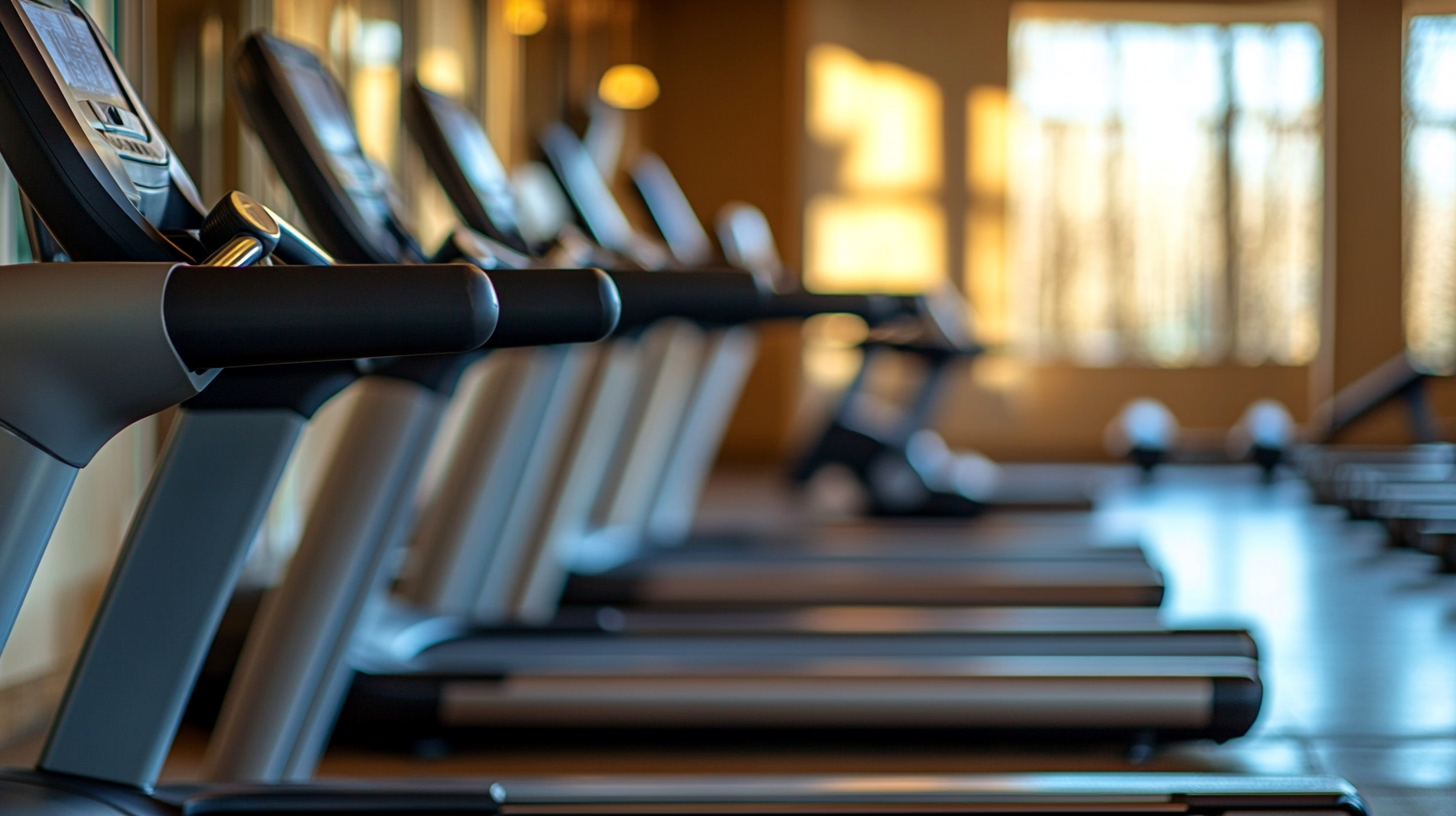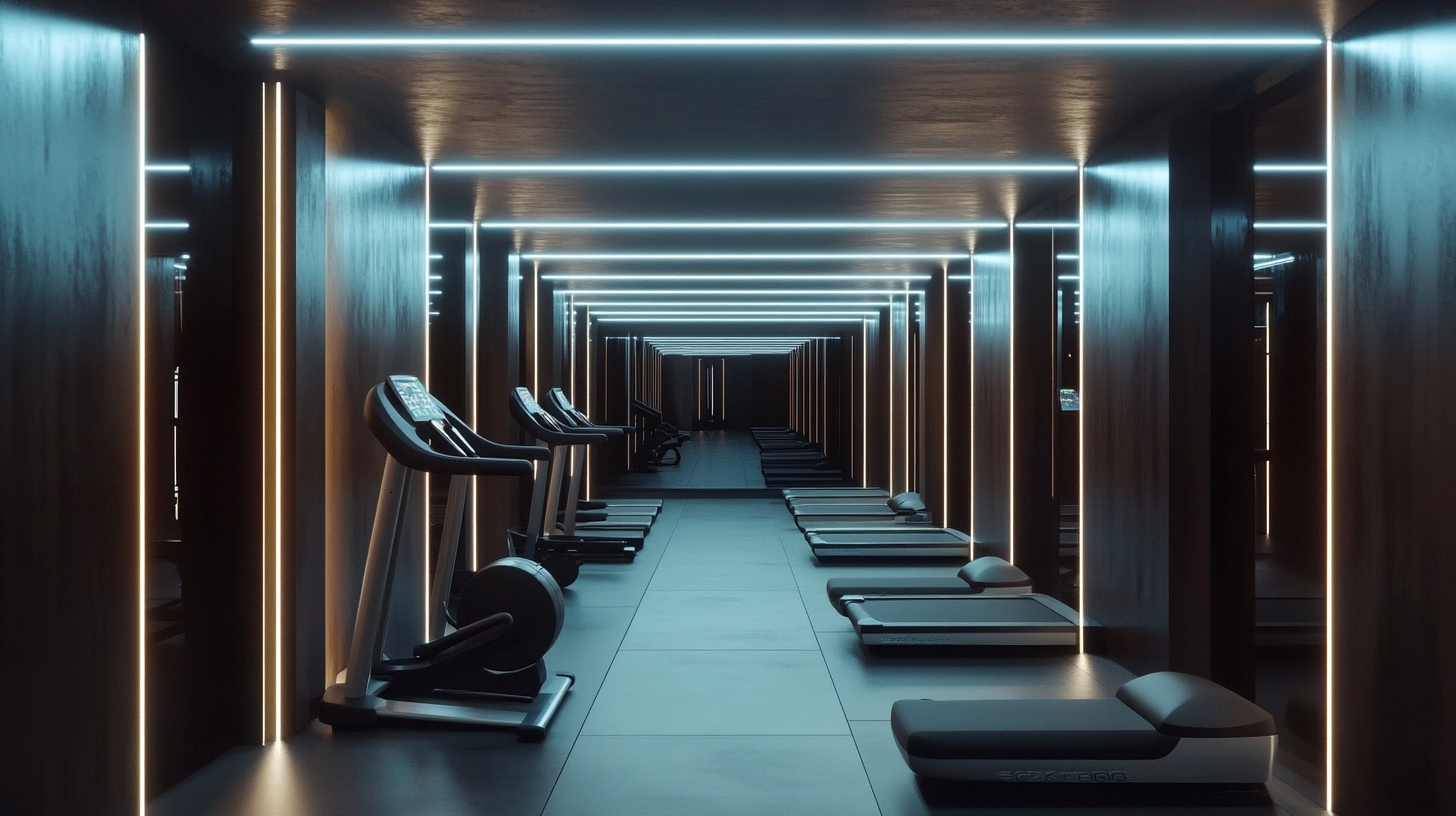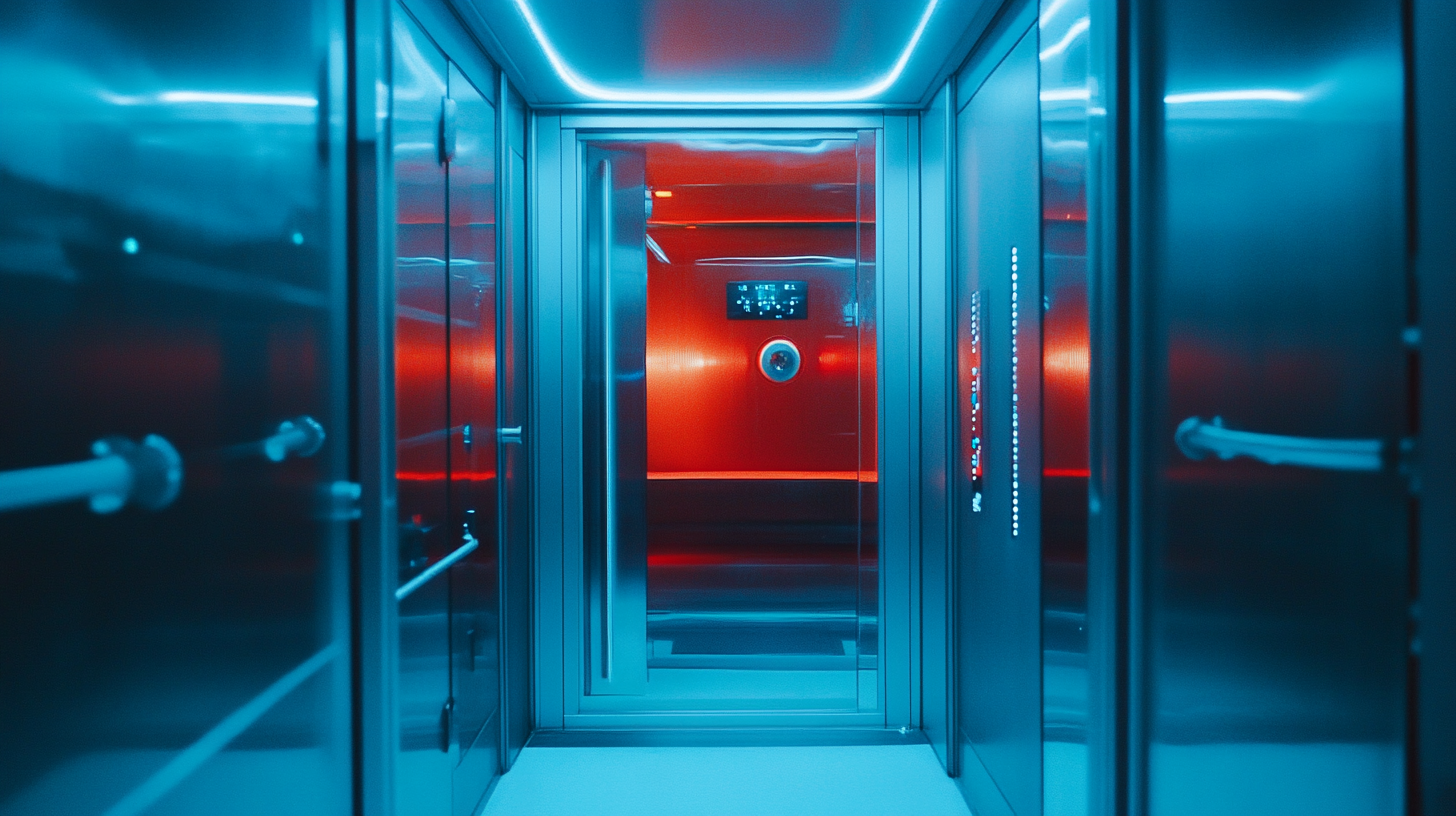The hospitality industry is on quite a fast track in reinventing itself through novel approaches, which ultimately heighten guest experience and maximize occupancy rates. In a recent report released by IBISWorld, it was projected that in the next five years, the hotel and resort industry will grow at the rate of 3.5% per annum, with demand for unique experiences among travelers acting as a major driver of this growth. One trend stands out: the introduction of fitness equipment into commercial spaces, so that hotels and resorts can now offer wellness amenities targeting the growing health-conscious clientele. Furthermore, a Statista report presented that about 62% of travelers choose accommodations based on availability of fitness facilities, underlining the relevance of such offerings to stay competitive.
Fitness equipment applied creatively in hospitality can thus not only whet guest appetite but also promote well-being and sustainability overall. The hotel is redesigning its space to include multifunctional areas whereby guests engage in wellness activities besides exercise. Features like outdoor fitness zones and group fitness classes are becoming extremely popular, according to the Global Wellness Institute, which states that the wellness tourism market is expected to hit $919 billion by 2022. Various and modern fitness equipment investments by hospitality venues can attract the health-conscious crowd and build brand loyalty, making sure that properties stand out in an increasingly congested market.

The hospitality industry evolves at a rate faster than many. Corresponding to this, some hotels are now making provision for the inclusion of gyms in their facilities to promote the overall health and well-being of their guests. Well-being and personal health are top priorities of today's travelers, as they seek accommodations that allow comfort in a setting conducive to an active lifestyle. Hotels can thus widen their market appeal and improve customer satisfaction by providing them with cutting-edge fitness equipment and wellness programs. Among the foremost trends is the setting up of fitness environments with state-of-the-art technologies, exercise machines, and fitness equipment. From smart gym equipment that tracks a guest's workouts to the offer of virtual fitness classes on demand, guests can now incorporate fitness training into their schedules beyond the regular hours. To keep fit outdoors, the hotel should also provide attractive landscaping that includes fitness stations and areas for interaction. Otherwise, designing personalized fitness programs that provide wellness services would help cement their memory. Hotels can work with local fitness instructors to offer yoga or strength training classes that can be modified for guests' individual needs. Other wellness services—spa services—can also include fitness assessments and nutrition consultation to ensure guests depart feeling rejuvenated and inspired. With such focus on innovative fitness, hospitality can employ ways that significantly enhance the overall guest experience, hence making the stay not just enjoyable but transformative.

The hospitality industry is beginning to realize the fast-rising consumer demand for wellness-based experiences. With health and wellness on the top of guests' priorities while traveling, hotels and resorts turn this into a marketing tool by the incorporation of fitness equipment in their designs. Such trends go along with the wellness trend that sees fitness not just as an activity but as a choice of lifestyle that could be leveraged for increased guest satisfaction and loyalty.
With the inclusion of updated fitness equipment within public areas and guest rooms, hospitality designers create architectures that encourage physical movements. For instance, many hotels now provide in-room fitness kits and gym facilities with outdoor areas that offer exercise equipment. Such programs would undoubtedly contribute to the physical well-being of the traveler and, on the contrary, would enhance the mental well-being of guests as they could use them to unburden themselves from their work during their stay. Putting wellness into hospitality design fosters a holistic environment that can connect with guests who are health-conscious.
Also, these types of applications act as branding mechanisms for hotels and resorts. Hotels and resorts with the concept of wellness and fitness are bound to attract the attention of guests in search of tranquility and balance in their busy lives. These venues will be able to differentiate themselves in the market by creatively integrating fitness equipment within their spaces, thereby transforming that standard stay into an exceptionally enriching, wellness-driven experience.

With the changes in the hospitality industry, property owners have realized there might be a value attached to innovative fitness solutions that help maximize space utilization. The IBISWorld report states that the fitness industry has surged considerably, with projections estimating revenues at approximately $32 billion by 2026. Following suit, hotels and resorts are looking into multidisciplinary methods seeking to integrate fitness equipment within their overall design and guest experience strategies.
One viable way would be utilizing underused nooks for multi-functional fitness spaces. An example would be placing space-efficient fitness equipment on rooftop terraces or in gardens enabling their guests to work out while enjoying an exceptional panoramic view. The Allied Market Research Report states that the global fitness equipment market is expected to grow at a CAGR of about 23.4% from 2021 to 2028, which lays credence to the growing expectations of travelers from wellness-centered amenities. By optimizing these layouts, hospitality venues score better on customer satisfaction and find ways to create differentiation in a highly competitive market.
Besides, technologies such as smart fitness offer hotels the opportunity to engage their guests further. From interactive fitness mirrors to app-enabled equipment, guests can personalize their workout experiences based on their level of fitness and personal preferences. The Wellness Tourism Association says that 43% of travelers engage in fitness programs while away from home, meaning consideration of state-of-the-art fitness offerings would support higher occupancies and return visits-generating income to hospitality properties.

The hospitality sector is experiencing a fast-paced transformation that now integrates fitness amenities within hotel properties. The latest figures show an increasing desire among hotel guests for fitness facilities within the hotel premises, indicating a larger trend in which wellness has become an overwhelming factor in travel selections. Various industry surveys confirm that a growing number of travelers are on the lookout for hotels with fitness facilities so that they can actively keep fit even when they're away from home. This demand presents an opportunity for hospitality brands to think outside the box and enhance their fitness offerings.
Innovative applications of fitness gear for commercial settings are in the lead of this transformation. Hotels are set up with multifunctional spaces for fitness, seamlessly integrated within the design of the surroundings, offering the guests a diversified selection of workouts. Where smart fitness technology and adaptable equipment come together so that they can minimize large equipment in a small space, adaptable equipment is also for different fitness levels and preferences. Events such as the Shanghai International Hotel and Commercial Space Expo showcase newly founded strategies and products, giving hotels the opportunity to provide loaded wellness experiences.
Also, fitness brand partnerships are becoming more mainstream with hotel chains. The collaboration between Olyria China and Kempinski Hotel in Fuzhou emphasizes the need to customize fitness rooms that add to the guest experience. By putting fitness amenities at the forefront, hotels are attracting the health-minded traveler and positioning themselves as leaders in the changing hospitality landscape. This all-in wellness approach is providing life to commercial spaces where guests can focus on health and well-being while enjoying their stay.
In the highly competitive hospitality industry, enhancing brand equity is paramount, and an innovative way to achieve that is through the savvy deployment of fitness equipment. Providing the latest in fitness solutions will allow hotels and resorts to appeal to health-conscious clientele, resulting in increased occupancy and loyalty. Guests increasingly seek accommodation with wellness in mind, complemented by comforts and luxuries. Therefore, investment in modern fitness amenities and equipment can be a major trump card in a steeply crowded marketplace.
An investment in fitness equipment in hospitality venues can definitely make a high ROI. Hotels interested in wellness are also directly making such an investment to generate higher revenue and are really pleased to see their guests happy. Potential good revenues may get generated through the guests' extended stays where facilities have good-quality exercise equipment or special fitness activities like yoga studios or outdoor workout spaces. This elevated experience translates into good reviews and good word-of-mouth recommendations, so very important to building brands in this age of the digital consumer.
In addition, linkages with fitness brands or wellness programs can further improve the value proposition. The latest fitness trends and personalized wellness experiences will enable hotels to treat their guests to memorable stays in sync with the demographics the hotels are targeting. Notably, this not only puts the hotel among leaders in wellness but also ends up building a community of health-minded travelers who manifest loyalty to brands that mirror their lifestyle choices. Thus, the provision of fitness offerings is no longer an investment in equipment only; it is investment in brand identity that gives big returns.
Hotels are focusing on innovative fitness solutions to enhance the guest experience as travelers increasingly prioritize wellness and personal health during their stays.
Many hotels are incorporating state-of-the-art fitness facilities equipped with the latest exercise machines, smart gym equipment, and virtual fitness classes available on-demand.
Well-designed outdoor spaces with fitness stations and interactive workout areas encourage guests to engage with their environment in a health-conscious manner, enhancing their overall experience.
Hotels can offer personalized fitness programs, including guided yoga sessions, strength training classes, spa services with fitness assessments, and nutrition counseling for a more tailored wellness experience.
Yes, recent statistics indicate a growing preference among guests for hotels that offer fitness facilities, which reflects a broader trend prioritizing wellness in travel decisions.
Hotels are designing multifunctional fitness areas that blend seamlessly with their overall aesthetic, integrating smart fitness technologies and versatile equipment to cater to various fitness levels and preferences.
Partnerships between fitness brands and hotel chains are becoming common, allowing hotels to customize fitness rooms and enhance the guest experience through expert collaboration.
Wellness has become a crucial factor in travel decisions as more travelers seek to maintain their health routines, prompting hotels to innovate and enhance their fitness solutions.
By prioritizing fitness amenities, hotels attract health-conscious travelers and position themselves as leaders in the evolving hospitality landscape, transforming commercial spaces into vibrant hubs for health and well-being.